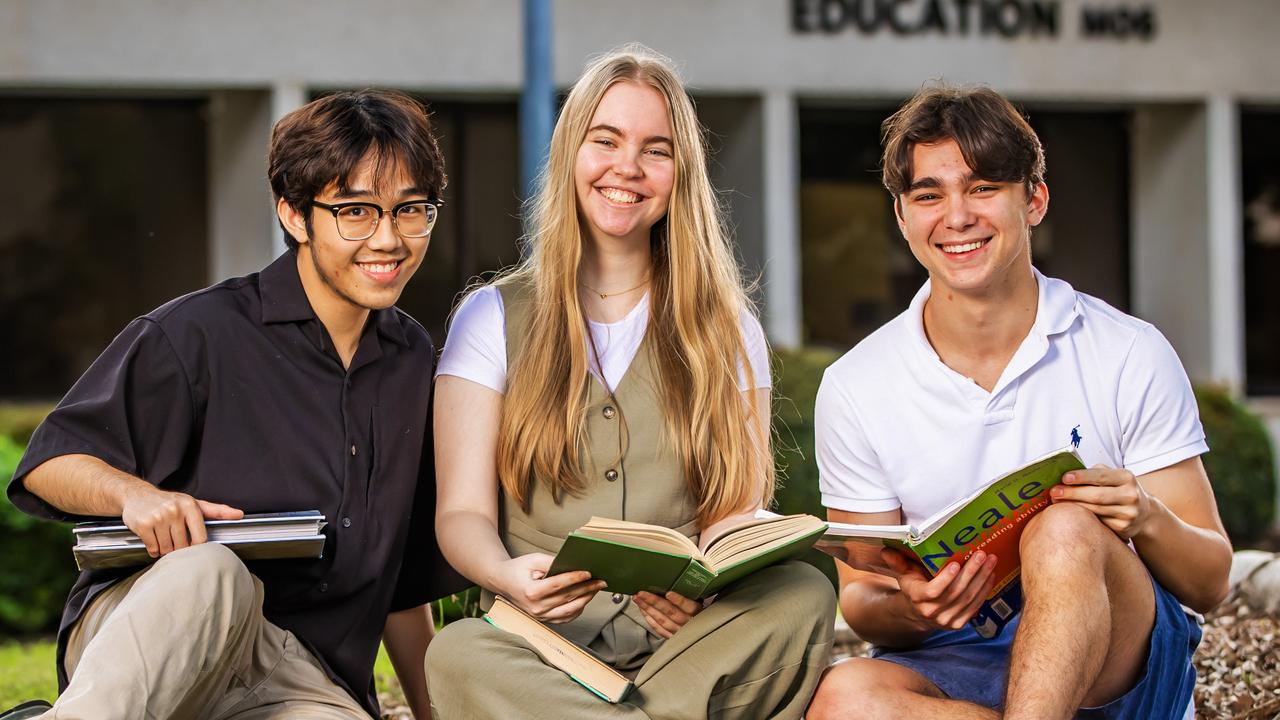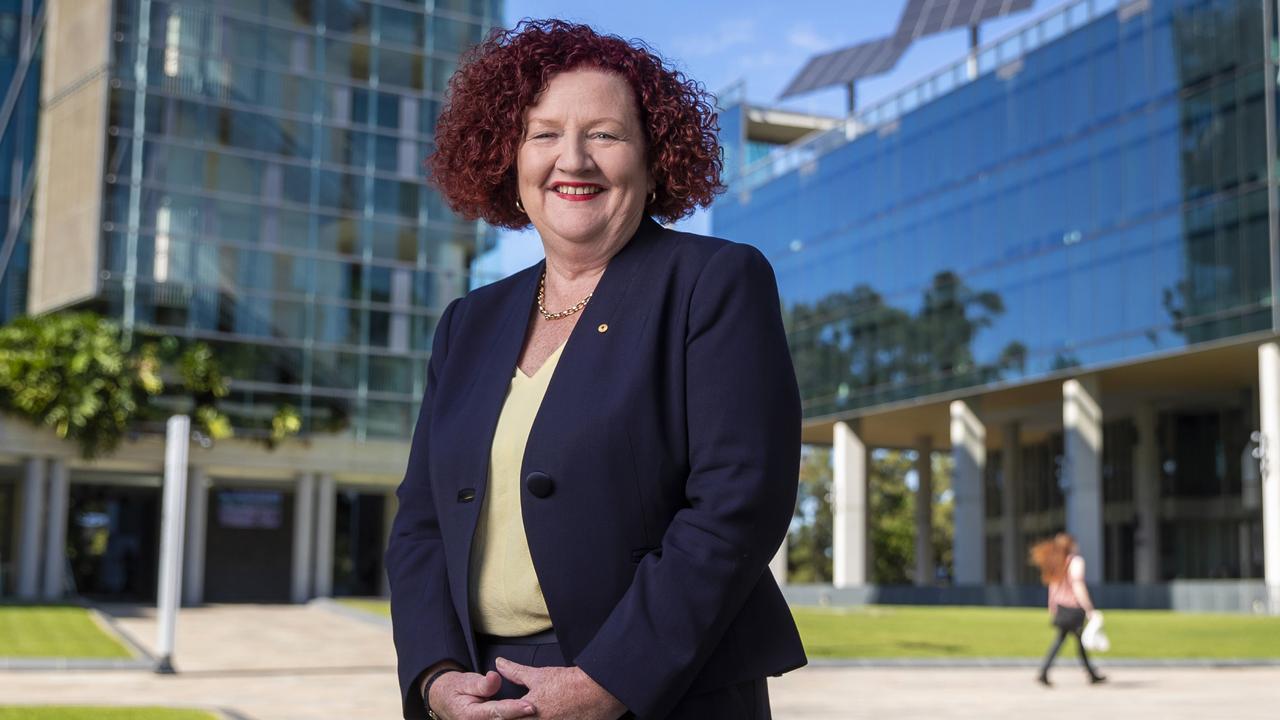Queensland University of Technology’s ‘anti-racism’ symposium speakers cleared
The Queensland University of Technology and its controversial speakers involved in an “anti-racism” symposium have been cleared of misconduct, a 64-page report has deemed.

Tertiary
Don't miss out on the headlines from Tertiary. Followed categories will be added to My News.
A Queensland university and controversial speakers involved in an ‘anti-racism’ symposium earlier this year have been cleared of any misconduct, an independent review has found.
Queensland University of Technology (QUT) on Wednesday released their 64-page report by former Federal Court judge John Middleton AM KC, who spent four months investigating the controversial National Symposium on Unifying Anti-Racist Research and Action event in January.
Held by the university’s Carumba Institute, the incident sparked backlash, with prominent current and former Australian politicians and members of the Jewish community expressing their outrage at the event.
The debate, which included a cartoon image of a character dubbed “Dutton’s Jew”, was found not to be anti-Semitic in nature or offensive to those at the debate.

Mr Middleton concluded that while slides and speeches by Sarah Schwartz, who leads the left-wing Jewish Council of Australia, and Indigenous poet Lorna Munro stirred controversy, they aligned with the university’s standards and the purpose of the debate.
He said Ms Munro did not intend to promote aggression when she encouraged attendees to “punch a racist”.
“Ms Munro’s presentation, while provocative in tone, was clearly satirical in nature and delivered within the context of a comedy event,” Mr Middleton said.
“Ms Schwartz intended to critique what she perceives as the political weaponisation of Jewish identity and anti-Semitism by certain political leaders. She was not critical of
Jewish people themselves.”
A transcript of the presentation by Ms Schwartz was included in the report, where she accused former Opposition Leader Peter Dutton of defending members of the Jewish community for political purposes.
“Dutton’s Jew has really, really helpfully, provided a human shield for him to talk about some of these favourite topics – hating on migrants by arguing the Palestinian refugees are a threat to Jews, just generally hating on Muslims, protecting everyday Australians from left-wing anti-war protesters and of course bolstering support for Israel as it commits a genocide,’’ she told the audience at the time.

Queensland Jewish Board of Deputies President Jason Steinberg welcomed “several important findings and recommendations”, including that QUT adopt and publish a formal definition of anti-Semitism, and that staff receive regular training to identify and address racist and anti-Semitic behaviour.
But, Mr Steinberg said he was concerned that the review failed to fully acknowledge the harm caused to the Jewish community.
“While the report finds that the presentations by Ms Schwartz and Ms Munro were not anti-Semitic when viewed in context, it is another case of telling Jews what constitutes antisemitism and overlooks the broader climate of fear, isolation, and alienation experienced by Jewish students and staff,” he said.
“We are particularly disappointed that the review does not recommend institutional accountability or consequences for the procedural and ethical failures that allowed the events to proceed without adequate oversight.”
The report did state that the university and the Carumba Institute should have given more consideration to conducting the debate.

Mr Middleton made several recommendations to the university, including that the QUT council should “consider the future role and function of the Carumba Institute’’.
“It is for the Council … to determine the future role and function of the Carumba Institute, and the future leadership of the management supervision over the Carumba Institute if it is to continue in the existence in the future,” he said.
He further recommended there be “more supervision over public activities” carried out by the Institute.
QUT Vice-Chancellor Professor Margaret Sheil said she would accept all recommendations in the report.
“It is vital that universities remain a place where diverse perspectives can be explored, challenged and better understood, however it is equally essential that these discussions are undertaken in a way that is respectful and avoids vilification or discrimination,” she said.
University of Queensland Jewish Associate Professor Yoni Nazarathy said like many people in the Jewish community after seeing the report he needed to “cool off”.
“The reason is that the report seems to purposely detach between Zionism and Judaism in an effort to white wash any antisemitism that has occurred at QUT.”
Prof Nazarathy said that in his view, content and vilification of Zionists as clearly exhibited in the symposium had helped “fuel” recent physical anti-Semitic attacks in Australia.
“While I respect Middleton, it was already clear to me during discussions with him that the direction the report was heading was to clear any claims of anti-Semitism happening at QUT”
“I’m not surprised that the report turned out that it did.”
“While the so-called JCA is a legitimate organisation voicing a legitimate view, it is well-known that they represent a very small subset of the Jewish community in Australia. Yet the review seems to have adopted language of this fringe organisation.”
“And as such, the participation in this event, white washes antisemitism as it is unfolding in our streets today
Prof Nazarathy said the review left him feeling “confused”.
“And also insecure in the ability of our institutions and government to combat antisemitism.”
Professor Shiel said the university had already strengthened oversight of the institute through new reporting lines to the Chief Academic Officer and adopted the Universities of Australia’s agreed working definition of combating anti-Semitism.
Professor Chelsea Watego remains in her role as the institute’s executive director.



